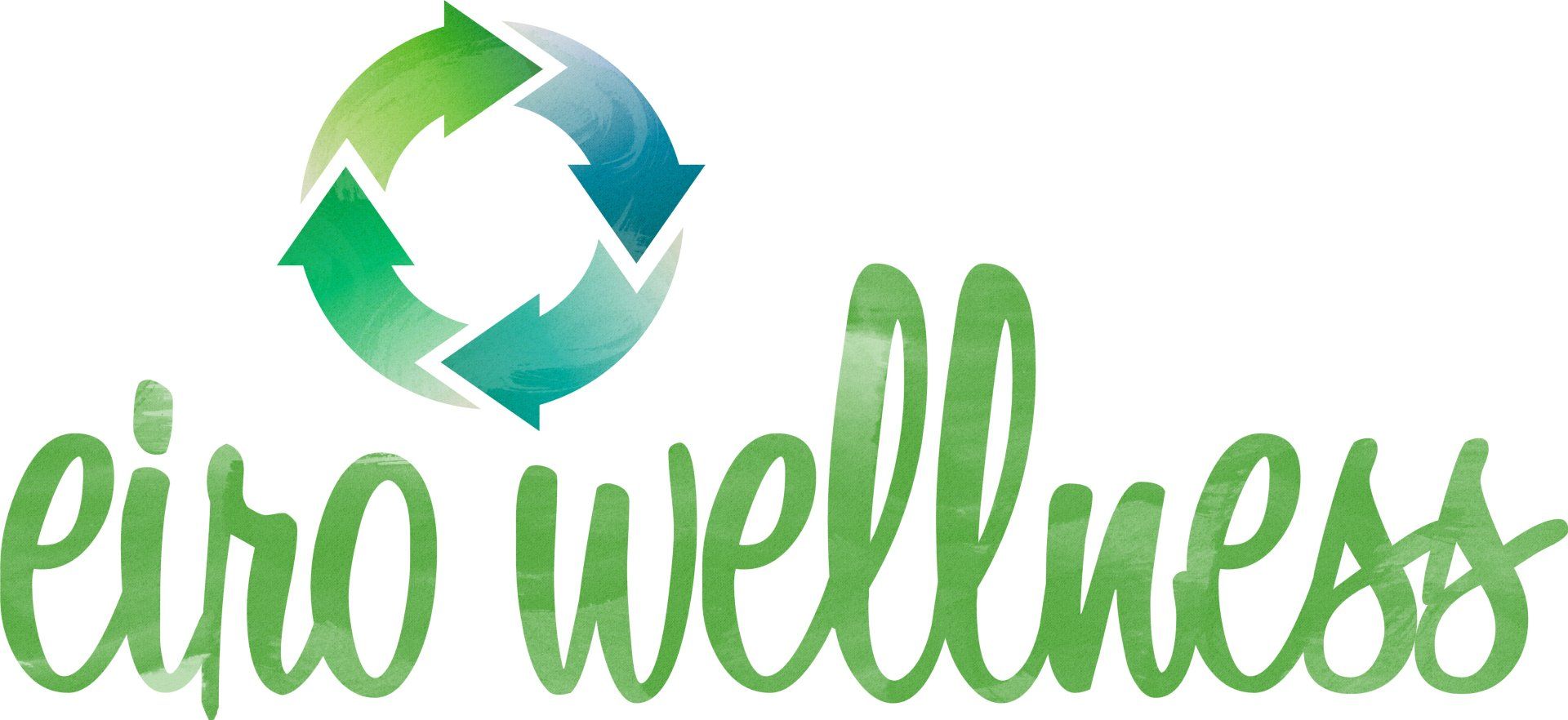Finding Freedom From Anxiety
Rachel Rauch • October 22, 2025
Three common traps (and better paths forward)
Last weekend, I visited Dow Gardens in Midland, Michigan. The serene landscape did not reflect the anxiety I felt a week earlier because of an appointment that I had dreaded. Just thinking about the appointment created overwhelming anxiety in me. It impacted my sleep and robbed me of quality focus and attention during the day. This is not the first time I have felt anxiety about an appointment, and it won't be the last time.
I texted some friends to pray for me. I increased the amount of magnesium I was taking, along with some other supplements. I processed through my fears with a mentor and others, and explored why the appointment made me so anxious. I ate more protein and went to bed earlier. It didn't eliminate all the fears, but it did help make the appointment easier.
I know I'm not alone in what I experienced. It may not be an appointment you are dreading. Your anxiety may originate from a completely different cause, but it is anxiety nonetheless and interferes with plans, productivity, and peace.
Finding Freedom From Anxiety: Three Common Traps (and Better Paths Forward)
One in five people experiences significant anxiety that interferes with daily life. It can affect everything — your sleep, digestion, focus, relationships, and even your ability to feel close to God.
But here’s the good news: anxiety is not your identity, and it’s not your destiny. You can learn to understand it, care for your body and mind, and rebuild your peace. This is what I did, and although it did not completely eliminate the anxiety, it helped make it more manageable.
Over the years, I’ve noticed three common traps women fall into when they’re trying to manage anxiety — and some healthier, more hopeful ways to approach each one.
Trap #1: Trying Every Supplement You See Online
You hear about herbs or supplements that promise calm — and maybe you try a few. Some help, others don’t. When they don’t work, it’s easy to feel frustrated and discouraged.
Here’s why that happens: our genetics can affect how our bodies respond to certain nutrients. For some people, ashwagandha will make them feel more anxious, and for others, they will feel calmer.
A better way: Instead of guessing, consider getting a methylation test or a pyrroles test to determine how your body processes nutrients and neurotransmitters. This can help you discover not only which supplements support your calm but also why you’re anxious in the first place.
Trap #2: Ignoring What Your Anxiety Is Trying to Tell You
Anxiety always has a reason — it’s your body’s way of sounding an alarm. But in our busy lives, we often push through instead of pausing to listen.
Ask yourself:
- Have I been sleeping poorly or skipping exercise?
- Am I feeling unsafe or overcommitted?
- Have I been relying on caffeine or sugar to keep going?
- Is there conflict or emotional stress I’ve been avoiding?
- Are there unresolved memories that trigger anxiety?
A better way: Instead of numbing or distracting yourself, slow down and listen. Then, change what you can: sleep, nutrition, caffeine, and movement. Small adjustments in rhythm and rest can bring big relief.
Trap #3: Believing Anxiety Is “Just Who You Are”
It’s easy to say, “I’m just an anxious person. My mom and grandma were too.”
Yes, family history, trauma, and life circumstances can increase anxiety — but they don’t have to define your future.
When you begin to understand your capacity (your God-given limits) and learn to live within them, you start to build resilience.
Your capacity can shrink during hard seasons — chronic illness, caregiving, financial strain, or unresolved grief — but it can also be rebuilt with time, care, and support.
A better way: Acknowledge your limits. Rest when your body asks you to. Choose to see a therapist who can help you identify lies and replace them with truth. As you live within your capacity, resilience grows — and anxiety begins to lose its power.
You Don’t Have to Do This Alone
Healing from anxiety takes time, grace, and community. That’s why I created my signature program, Wholeness Restored — a faith-based, holistic approach to uncovering the root causes of anxiety and rebuilding your energy, peace, and confidence.
If this message resonates with you, I’d love to invite you to a free 45-minute introductory call. There’s no pressure or sales pitch — just a safe space to share your health concerns and explore whether Wholeness Restored might be the next step in your healing journey.
Schedule your free call here.
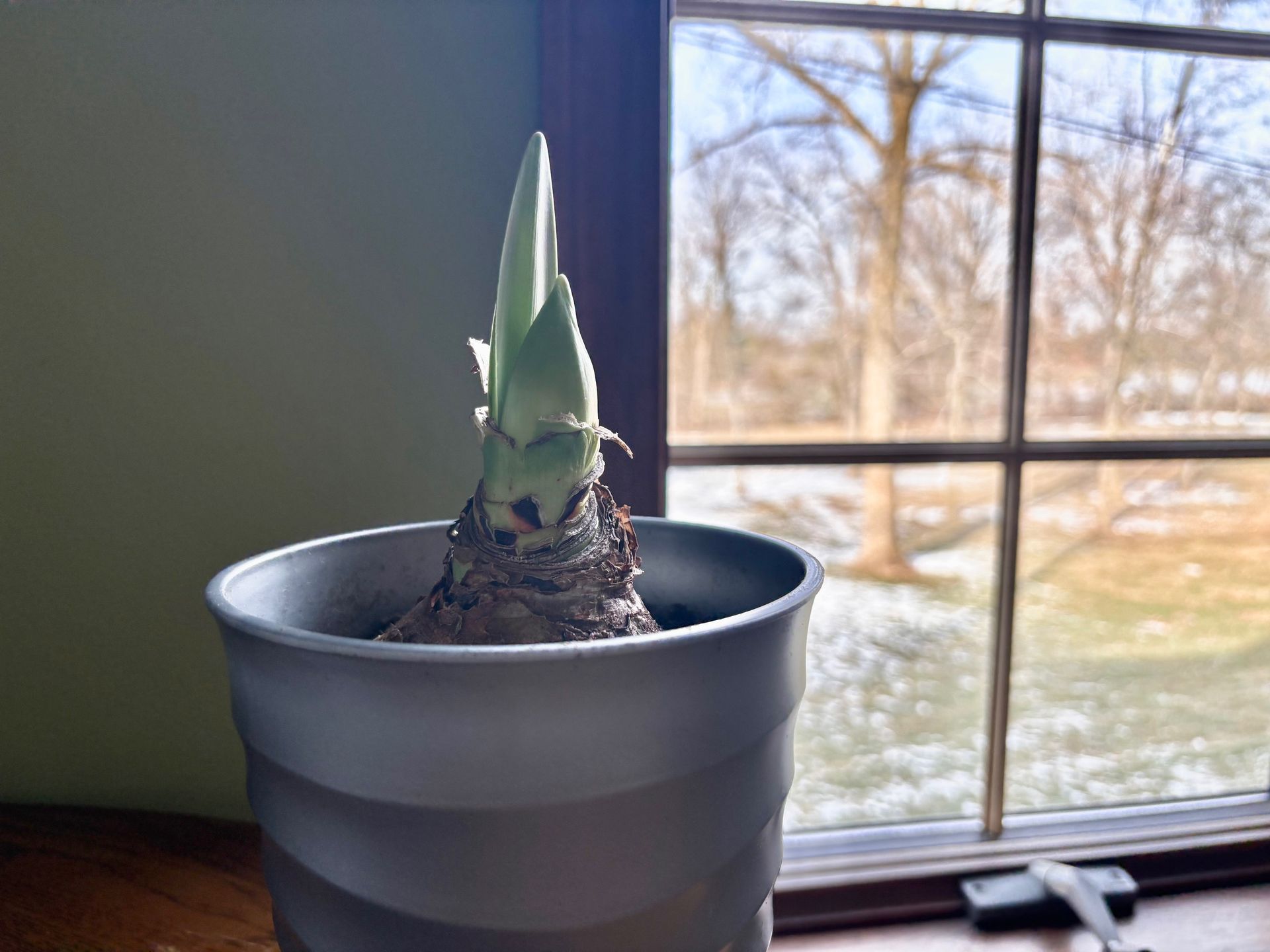
I barely remember the room, or even what she looked like. But I remember the feeling. Relief. Hope. I was sitting across from a practitioner, sharing a significant health challenge I had been carrying for a long time. When I finished, she looked at me and said, calmly and confidently, “I can help you with that. Give me six months, and you’ll be amazed at how much better you feel.” To this day, I truly believe that at least half of the healing I went on to experience came from that moment alone—because hope was restored. Not willpower. Not pushing harder. Hope. So many women I talk to are quietly living without it. They’re functioning. They’re serving. They’re holding everything together. But underneath, there’s a constant sense of strain—like they should be doing better by now. Like other people seem to handle life with more strength or resilience. Like needing help somehow means they’ve failed. And because of that, they keep carrying it alone. Here’s what I want you to hear clearly: Struggling doesn’t mean you’re weak. It means your system has been under a load for a long time. Chronic stress, unresolved trauma, environmental overwhelm, and the pace of modern life all tax the nervous system in ways that no amount of “trying harder” can fix. When your body has been operating in survival mode for years, healing doesn’t come from effort—it comes from support, safety, and a clear path forward. This is why structure matters. This is why guidance matters. Healing is rarely about one magic solution. It’s about having a step-by-step process that helps you understand what your body has been communicating all along—and walking that process in a way that feels supported rather than overwhelming. It’s also why community matters more than we often admit. There is something profoundly regulating about not being the only one. About having your experience normalized. About learning alongside other women who love their families deeply, take their faith seriously, and are still allowed to tend to their own restoration. This is the heart behind Wholeness Restored . It’s about helping you listen, respond wisely, and rebuild resilience—physically, emotionally, relationally, and spiritually—one step at a time. If you’ve been sensing that you can’t keep doing this on your own… that awareness itself is not failure. It’s wisdom. If you’d like a place to better understand what’s happening in your body and explore what next steps could look like, I’d love to invite you to schedule a free 45-minute introductory call . There’s no pressure—just space to talk, ask questions, and see whether Wholeness Restored might be the kind of support you’ve been missing. You don’t have to prove your strength by carrying everything alone.
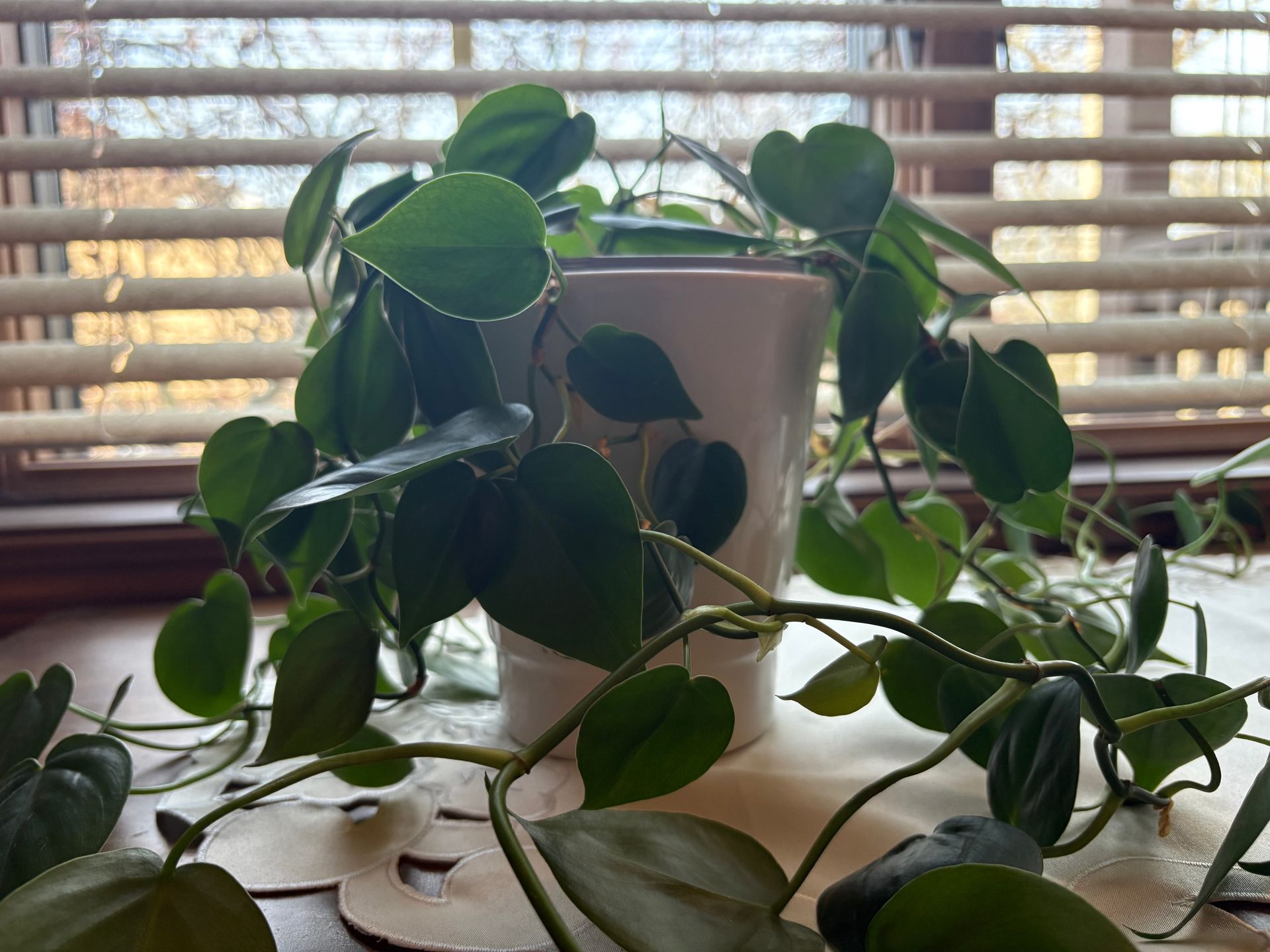
I first met Maddie* when she scheduled an introductory call with me. She was smiley and warm—one of those women who makes you feel at ease right away. As we talked, she shared pieces of her life, and slowly a much fuller picture came into view. She had just moved out of a home with mold and into a new “smart” home. Her youngest son had been dealing with medical issues that required a lot of time and emotional energy. She was homeschooling four children. She was leading two different committees at church. And somewhere in the middle of all of that, she felt guilty—convinced she wasn’t doing enough—and resentful toward others she thought should be doing more. On the surface, Maddie looked like she was managing well in spite of everything she was doing. But underneath, her system was carrying a hidden stress load of toxins that was contributing to her overwhelm. This is something I see often. When we think about stress, we usually think about what’s obvious: busy schedules, emotional strain, and difficult seasons. But the body doesn’t just respond to what we consciously label as stressful. It responds to everything it has to process. That includes what’s in our environment. Our nervous system is constantly taking in information—from our relationships, our responsibilities, our thoughts, and also from the world around us. Mold exposure. Processed foods. Household cleaning and body care products. EMFs. Even when these things feel normal or unavoidable, they still ask something of the body. Not because they’re always “bad” or because you’ve done something wrong—but because the body has to work to adapt. When that environmental load is added on top of chronic stress, past trauma, and a lack of recovery, it can quietly tip the system into overload. This is why so many women tell me, “I don’t understand why I feel this way.” “I’m trying to take care of myself.” “I’ve made changes, but nothing really sticks.” Often, it’s not that nothing is working. It’s that the body is already maxed out. In Wholeness Restored, we begin with a simple but powerful pillar: Recognize . Recognize what your body has been navigating—both seen and unseen. Recognize that symptoms aren’t random. Recognize that healing is harder when the environment is constantly asking more of a system that’s already depleted. This isn’t about fear. It’s not about eliminating every possible exposure or striving for perfection. It’s about awareness. Here’s one question you can ask yourself this week: Instead of saying, “What else should I add to fix this?” Ask, “What might be adding stress to my system that I haven’t considered?” I also have a Resource Guide that includes some of the ways I personally have chosen to reduce environmental stressors—without turning my life upside down. You can download it here . And if you’d like help understanding how your unique stress load—life demands, environment, and internal patterns—may be impacting how you feel, I’d love to invite you to a **free 45-minute ** introductory call . It’s a space to understand what’s happening in your body and explore next steps together. If you’re considering deeper support, I want you to know that during January , enrollment in Wholeness Restored includes a free Adrenal Cortisol Test (a $210 value). It’s a simple tool we use to better understand how stress may be showing up in your body so your healing journey can be more informed and specific. *Maddie isn’t one specific client—she represents a combination of stories and experiences I see again and again in the women who reach out to me.
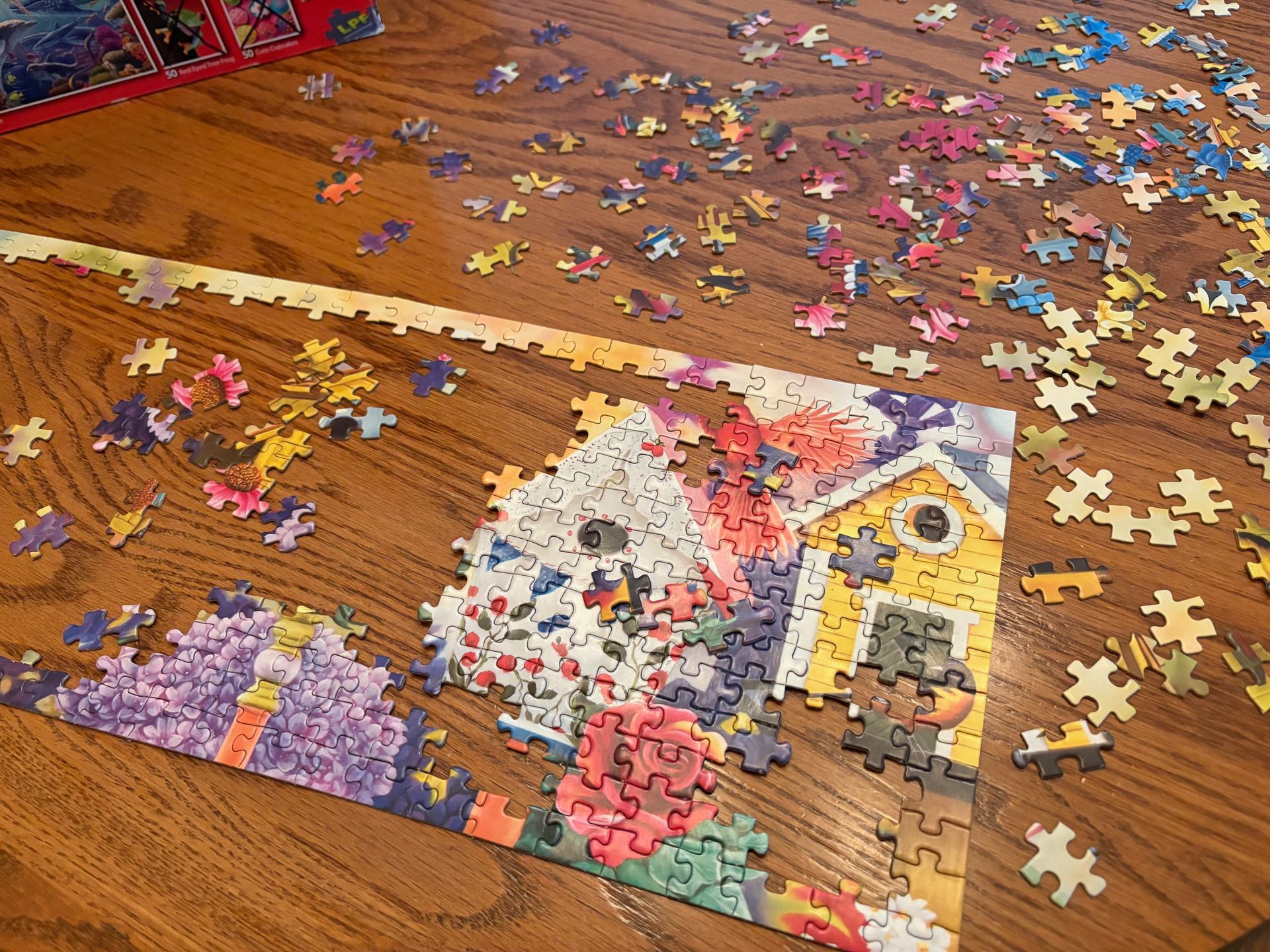
You want to do it all—and you want to do it right. You want to serve God well. Serve your family well. Be present with your kids. Host people in your home. Cook healthy meals. Exercise consistently. Invest in the lives of people you love. Help where there’s a need. And still show up fully for your work and the people you serve. And the more full your life becomes…the more frantic it starts to feel. I’ve noticed this pattern in myself more than once. The more I have going on, the more productive I feel like I need to be. My pace speeds up. My mind races. Rest starts to feel irresponsible. It becomes an exhausting hamster wheel. Can you relate? What I’ve learned—and continue to learn—is that when I reach that place of frenetic energy, it’s a sign that my nervous system is dysregulated. I’m no longer operating from a place of health, even if everything on the outside looks “good.” Here’s what that often looks like in real life. When the nervous system stays under stress for too long, the body shifts into a state of constant readiness. It’s trying to keep you going, keep you safe, keep you functioning. But that state was never meant to be permanent. So instead of feeling calm and steady, you might notice: A constant edge or underlying anxiety Feeling tired but unable to truly rest Irritability that surprises you Overwhelm over things that used to feel manageable Many women assume these symptoms mean something is wrong with them—or that they should just try harder to fix it. But often, these are signals. Not failures. They’re the body’s way of saying, “I’ve been running in survival mode for a long time.” Most women I work with don’t come to me talking about nervous systems or dysregulation. They come saying, “I don’t feel like myself anymore.” Or, “I don’t understand why I feel this way when I’m doing all the right things.” And that confusion can lead to shame. Please hear this clearly: Feeling anxious, wired, irritable, or overwhelmed does not mean you’re weak. It does not mean your faith is lacking. And it does not mean your body is broken. It means your system has been carrying more than it was designed to carry without support and recovery. Here’s something you can do this week—whether or not we ever work together. Instead of asking, “What’s wrong with me?” Try asking, “What has my body been asking me for that I haven’t been able to give?” That simple shift—from self-criticism to curiosity—can change everything. Healing doesn’t start with fixing every symptom or making perfect choices. It starts with understanding what’s happening in your body and creating safety again, little by little. That understanding is what led me to create Wholeness Restored . It’s a step-by-step, supportive program designed to help women move out of survival mode and into a place of steadiness, energy, and peace—by addressing root causes and honoring the body rather than overriding it. If you’d like a space to better understand what your body might be communicating right now, I invite you to a **free 45-minute ** introductory call . It’s a place to ask questions, be heard, and explore next steps—no pressure. And for the month of January , women who enroll in Wholeness Restored also receive a free Adrenal Cortisol Test (a $210 value), which can offer insight into how chronic stress may be impacting energy, mood, sleep, and resilience. If you’re tired of pushing through and ready for a gentler, wiser way forward, you don’t have to do this alone. You can learn more by booking a free call .
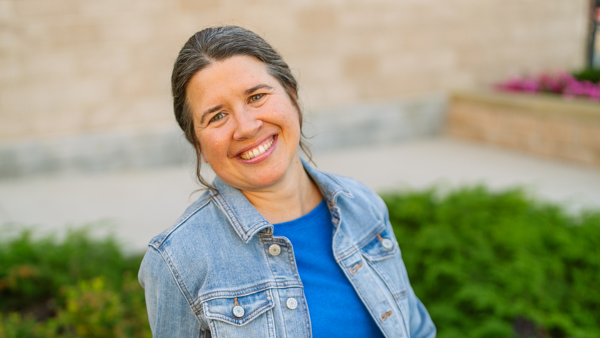
The end of December is a paradox. We are saying goodbye to another year while simultaneously welcoming a new one. Some of us are sad to see 2025 end, while others are more than ready to wash our hands of it. Some of us eagerly anticipate 2026, and others dread the thought of another year altogether. In spite of how you feel about the year ahead, setting New Year’s resolutions is probably on your mind—either because “this is the year” or because you’re trying hard to ignore all the hype around goals. As I reflect on 2025 and the goals I set, I see a year marked by both successes and failures. Some goals I gave up on in the first week and felt guilty about, blaming my lack of discipline. Other goals I stuck with for the entire year—but they became something to check off a list rather than habits that truly benefited me. So rather than give you another pep rally about the goals you should set—to reduce anxiety and improve mood, eat healthier, exercise regularly, get more sleep, reduce stress, improve relationships, etc., etc., etc.—I want to talk about the annual problem of setting goals to begin with. WHY HEALTH GOALS SO OFTEN FAIL External factors Life is full, stressful, and demanding. Women are often trying to improve their health while caring for everyone else. Most women don’t have the support or accountability that actually sets them up for success. Internal factors Most goals fail because they don’t address: Why anxiety, exhaustion, poor sleep, or chronic stress patterns developed in the first place How emotional load and unresolved stress drive unhealthy habits How a dysregulated nervous system—often shaped by past trauma or prolonged stress—uses these habits as survival strategies When we try to white-knuckle behavior change without understanding the why , it often leads to: Burnout Shame Loss of motivation Starting over every January It’s simply not reasonable to expect lasting health change while trying to do everything alone. It becomes a vicious cycle of goal setting—and it doesn’t have to be that way. THE TURNING POINT: WHAT FINALLY WORKED My most successful goals this past year weren’t accomplished because I tried harder. They worked because I didn’t try to do it on my own. I had people who helped me be realistic, pointed out likely pitfalls, and provided accountability that wasn’t shaming. The goals themselves weren’t earth-shattering or impressive—but they were life-changing. The progress wasn’t perfect, but it was noticeable. And it came from insight, support, and structure—not more pressure. WHY ACCOUNTABILITY MATTERS Accountability is a gift, not a failure. It brings clarity instead of confusion, consistency instead of all-or-nothing cycles, and feedback when something isn’t working. Accountability isn’t about being watched—it’s about being supported, understood, and guided. This is exactly why I created Wholeness Restored . WHOLENESS RESTORED Wholeness Restored is a 6-month program designed to address the root causes of: Anxiety and mood struggles Poor sleep and exhaustion Hormone imbalance Emotional and relational strain Digestive concerns Wholeness Restored removes the guesswork and helps uncover the real—often hidden—reasons you feel the way you do. I focus on whole-person healing: physical, emotional, relational, and spiritual health. WHAT MAKES WHOLENESS RESTORED DIFFERENT No supplement or diet recommendations based on social media trends. Sustainable health habits should not be extreme. No one-size-fits-all plans. I test, assess, and personalize recommendations based on your results. You don’t journey alone. Ongoing support is a core part of the program—and one of the most valued components is the virtual community. You’ll connect with other women facing similar struggles and experience encouragement instead of isolation. SIMPLE NEXT STEPS Step 1: Schedule a free introductory appointment Let’s have a no-pressure conversation. I want to hear your story, understand your health concerns, answer your questions, and help you discern whether Wholeness Restored is the right next step. Step 2: Complete a short questionnaire This helps me prepare for your appointment so we can make the most of our time together. Step 3: Join me for a virtual appointment Our Zoom appointment will take place from the comfort of your home. I’ll walk you through Wholeness Restored and explain how the program is customized to address your specific needs. A JANUARY BONUS Anyone who schedules a free introductory appointment in January and enrolls in Wholeness Restored will receive a Free Adrenal Cortisol Test ($210 value) . This salivary cortisol test provides insight into how current stress or past trauma is affecting your body. Cortisol plays a major role in energy levels, sleep, mood, sugar cravings, anxious feelings, and hormone balance. WHAT IF NOTHING CHANGES? It can feel easier to ignore our own needs—but I don’t want you to experience another year of: Starting strong and fading Carrying stress in your body Feeling frustrated with yourself Instead, I want you to experience: Sustainable progress Feeling supported rather than isolated Health goals that actually improve daily life As I look ahead to my own goals for 2026, I already know the most important factor for success: surrounding myself with people who provide encouragement and accountability. What about you? Are you ready for support in your healing journey? If so, schedule your free introductory appointment and let’s explore what that could look like for you. Remember—this is a no-pressure conversation, not a commitment. You don’t have to do this year alone. Wholeness Restored can be the difference between another restart and real change. P.S. Many women are surprised to learn how deeply stress and past experiences can affect hormones, mood, and energy. The free adrenal cortisol test (a $210 value) included with January enrollment helps uncover those root causes so your health goals can finally align with what your body needs.
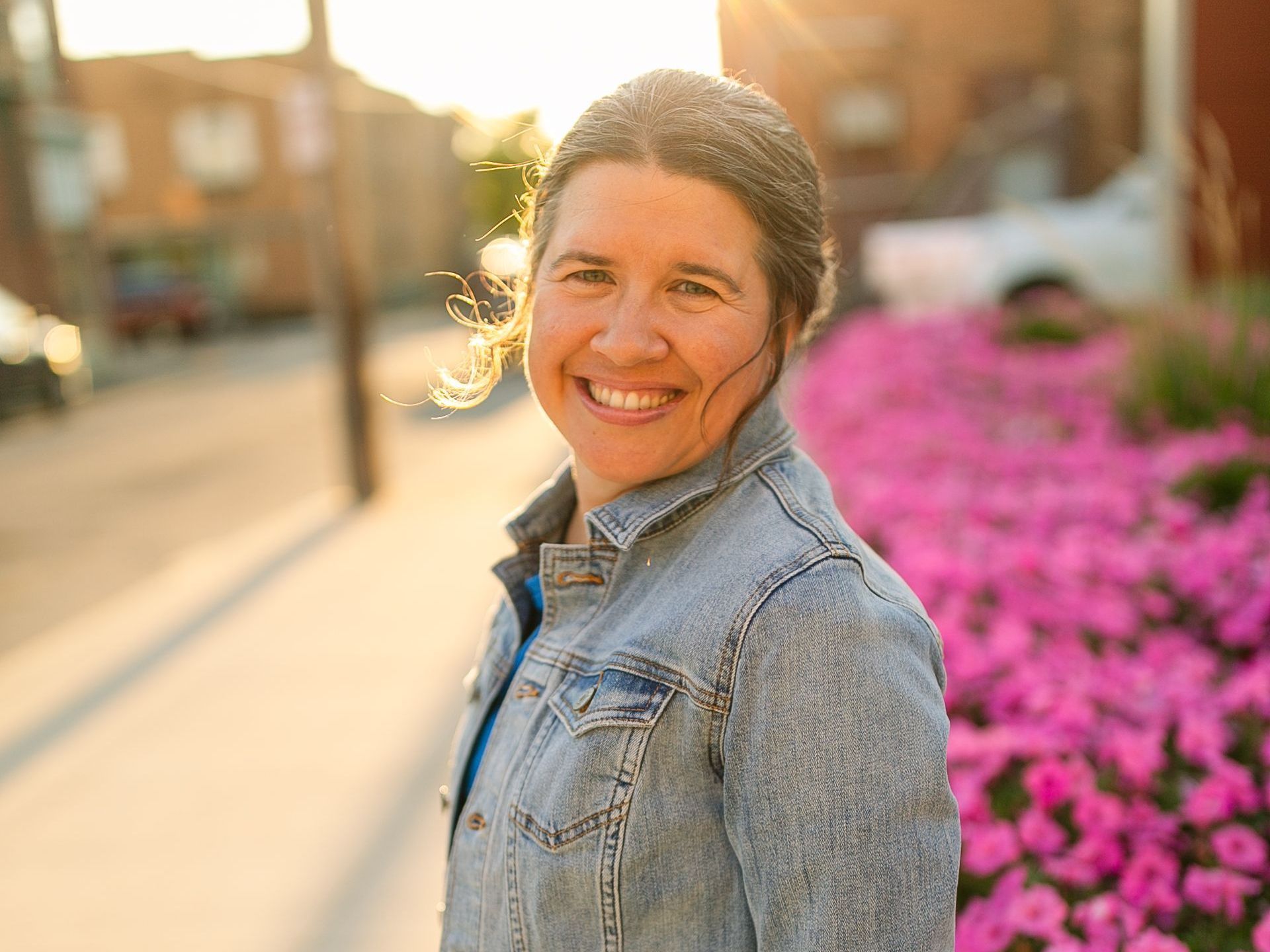
It’s that time of year when we all think about how we can get healthy after the holidays. Guilt, shame, and comparison are often the motivation for setting goals to improve our health. As a Christian, there is this tension between feeling like we should sacrifice our own needs to take care of our families and living up to the cultural expectation of working out every day and eating healthy all the time. It’s easy to feel trapped with no solution. I want to be a different voice among the noise of every social media influencer. No guilt, no diet craze nor exercise fad. I have just one question for you: What do you need to do for yourself so that you can sustainably serve your family or those you love? You see, you can’t serve others from a place of constant emptiness. If you ignore fatigue and moodiness while brushing off the feeling that you no longer enjoy being with your family or friends because you are too tired to be present, this gives way to going through the motions of daily life, rather than being fully engaged. Please hear me - if this is you - now is not the time to start a new exercise plan or change your diet! You can’t exercise or follow a new diet when you are already exhausted and empty. It will only add to the exhaustion you feel. It is time to start filling you back up so that you can serve others from a place of fullness again… instead of emptiness. Maybe you have dealt with fatigue and exhaustion for so long that you can’t even imagine what fullness is like. Dream with me for a moment! Fullness is having energy to keep up with the kids. Fullness is waking up feeling rested in the morning. Fullness is hormone balance that doesn’t interfere with life. Fullness is having control of your mood instead of your mood controlling you. Fullness is resilience to handle life’s next curve ball. Fullness is being present with your loved ones. I want the fullness to do the things that God has called me to. I want energy and passion instead of exhaustion! I want to engage with my family and friends in a way that doesn’t leave regrets. I want to live in the present instead of wishing for a less stressful future. You too? Then let’s do it together! Let’s fill you back up. Let’s identify what your body needs to heal. So, your hormones quit getting in the way. So, you don’t feel so irritable with those you love. So, you have margin to enjoy interruptions from kids. So, you don’t keep going to bed tired and waking up tired. So, you don’t feel anxious and depressed. My passion is to help women fill back up, so they don’t have to continue living from a place of emptiness. So, set aside your goals of a new exercise program and healthier eating and come join me. There will be a time for exercise and clean eating, but there is a specific order to how you move from emptiness to fullness. And I would love to teach you how to do that! You don’t have to choose between taking care of yourself and serving others! You can invest in yourself so that you can continue to serve others! It’s a win-win for everyone! Just like my client Abby said. “There is so much more joy and happiness in our house now that I’m able to interact with everybody on a different level. I didn’t realize that changing how I felt would have such a drastic impact on our everyday family dynamics.” If you would like to work together on restoring your health, you can schedule a free introductory call . I want to better understand your health concerns and how they are impacting you! So, as the new year comes fully into view, choose to commit to filling yourself back up so you can continue to serve those you are called to!

The Christmas season often feels like a whirlwind, doesn’t it? I catch myself rushing through the days, barely pausing to savor the beauty of this time of year. Do you feel the same way? At other times, the challenges in our world feel heavier during the holidays. The hard realities don’t pause for December, and there are still people who are hurting, lonely, and in need of hope. In my Wholeness Restored Program, I talk a lot about how relational health is a vital part of our overall well-being. It’s about giving and receiving in meaningful ways—not just through material gifts. True health includes physical, emotional, relational, and spiritual wholeness. Here are three simple ways to invest in relationships this season and boost your health while bringing joy to others: Smile! Make eye contact and share a warm smile with strangers—the cashier at the store, the delivery driver, fellow attendees at holiday events, or someone at church you don’t know well. You’ll not only brighten their day but also find yourself feeling happier, too! Reach out to someone nearby. Visit a neighbor or an elderly person who might not have family around to keep them company this season. Give with purpose. Adopt a struggling family or support an internationally displaced family through a local charity. Alternatively, partner with ministries like Samaritan's Purse or Voice of the Martyrs to send gifts to children or families around the world. This could be a meaningful group activity with friends or family! If sending gifts overseas, consider including a personal letter or photo. Christmas can feel both overwhelming and lonely at times, but investing in relationships can help us find purpose beyond ourselves. It’s a reminder of why Jesus came to earth—to relate to others, bringing hope and light into a world full of challenges. So, this season, smile, visit, and give. There are people around you who need the hope you carry through your relationships.

I wonder what Henry Wadsworth Longfellow had in mind when he composed the lines, And peace on earth, good will toward men? They are familiar words to me in the song I Heard the Bells on Christmas Day , but some years the racing about—trying to cram as much activity into December as possible—is more familiar to me than peace. You too? If there is a time of year I want to buck my limitations, it is the Christmas season. I don’t want to miss out on anything. Or at least, I don’t feel like I should miss out—because I don’t want to disappoint someone. Again… you too? Here’s the thing. We can’t do it all and do it well. We can’t add more water to an already overflowing glass. And maybe that’s part of the invitation of the season. The first Christmas was full of human limits: a weary couple traveling by foot and donkey, a young mother giving birth far from home, a feeding trough as a bed, and humble witnesses with their sheep. Yet now, centuries later, we often assume love looks like capacity without a ceiling, energy without an end, and bodies without needs. We demand that our bodies continue to meet the needs of the season. We don’t allow time for rest. We feel frustrated when our energy slows and disappointed when we get sick. Or we push through sickness because we still don’t want to miss out. We ignore the need for nourishing food and sufficient sleep, and then wonder why we feel irritable and foggy-headed. We shame our bodies when the sugar cravings win. We skip exercise so we can squeeze one more task into the day. We run ourselves thin and call it commitment. We pour ourselves out and call it devotion. But exhaustion is not a gift. A depleted body cannot delight. A hurried heart cannot remember well. Embracing limitations honors the body and allows you to feel good while being truly present during this Christmas season. It means giving your physical self permission to be human—finite, hungry, tired, in need—and discovering that caring for your body actually expands your ability to care for others. When we choose: nourishment instead of only sugar-fuel, sleep instead of one more late-night scroll or wrap session, a walk instead of only a sprint, rest instead of relentless doing… …we stop fighting our design and start living in it. A well-nourished body is steadier. A rested mind is kinder. A regulated nervous system laughs more easily at Christmas lights and spilled cocoa. Presence comes naturally when we are not in survival mode. So when the bells ring this year—maybe we’ll hear them differently, as a reminder to slow down and sense the rest in our bodies and the peace in our hearts.

I woke up to our first snowfall about a week ago. I found it to be both shocking and exhilarating! Shocking because of the cold and the wind. I had only pulled my winter coat out the day before. And exhilarating because of how clean and white everything looks under a blanket of snow. Along with the snow comes warm flannel sheets on my bed, cozy sweaters, and hot baths. Baths are something I have a love-hate relationship with. I love them for how I feel during the bath. I hate them for how I feel after the bath. I sometimes feel hot and stimulated and struggle to relax after a bath. But I have been diligently working to find a way to love the way I feel after the bath. Why? Because baths are so soothing and nourishing for the nervous system! I know—a bath may sound too easy. But the science behind it is powerful. Warm water sends calming signals to the brain, relaxes muscle tension, and wraps your body in a comforting sense of support and containment. Here’s how a bath can help, depending on your stress response: When you’re stuck in fight or flight (Anxiety • racing thoughts • tension • irritability) A bath helps by: Lowering stress hormones like cortisol Slowing the heart rate and breathing Releasing tight muscles from chronic alertness → Your body finally gets permission to stand down. When you’re stuck in freeze or shutdown (Numb • disconnected • unmotivated • overwhelmed) A bath helps by: Increasing circulation and warmth Providing gentle sensory input Creating a safe space to reconnect with your body → You begin to thaw and come back into the present. I recently discovered that I was taking baths the wrong way — instead of calming my nervous system, I was unknowingly revving it up! But with a few simple changes, baths have gone from something I dreaded… to something I genuinely love. What I’m Doing Now to Make Baths Truly Calming 1. I use a bathtub water filter Did you know you can absorb more chlorine and other contaminants from one bath than from a full day of drinking water? Chlorine displaces iodine in the body, which can impact thyroid function and your body’s natural detox abilities. I already use an AquaBliss shower filter , so adding this tub filter just made sense — and I no longer smell chlorine as I soak. 2. I lowered the water temperature I always assumed hotter = better . Sure — sweating in a sauna can help detox… But when your goal is nervous system regulation , too much heat can actually overstimulate you. Now I choose a warm, soothing temperature — not too hot, not too cold. (Call me Goldilocks!) 3. I add Epsom salts Epsom salts provide magnesium sulfate — a powerhouse for calming the nervous system. Magnesium helps: Relax tight muscles Support stress hormone balance Improve circulation and warmth Aid natural detox pathways 4. I add calming essential oils I mix essential oils into the Epsom salts first so they disperse better in the water (oil and water don’t mix!). Some of my favorites: doTERRA Serenity doTERRA Balance Lavender , Roman Chamomile , or Frankincense Pro tip: Avoid “hot” oils like cinnamon or oregano — they can irritate sensitive areas when soaking. 5. I choose quiet over multitasking Instead of catching up on podcasts or reading lists, I’m letting the bath be a single-focus experience. Sometimes instrumental music feels soothing… Other times, silence is exactly what my nervous system needs. Let the Bath Be a Safe Place Supporting your nervous system in the bath is intuitive. Notice what feels soothing. Practice slow breathing. Let the warmth and water help your body unwind and feel safe again. Taking a bath might seem simple — but when done intentionally, it can be a powerful step toward healing and calm. How to Take a Nervous System–Healing Bath Dim the lights, silence notifications. Fill the tub with warm (not hot) water. Add: 1–2 cups Epsom salts 5-8 drops of calming essential oils (Lavender, Chamomile, Frankincense) mixed into Epsom salts. I like to add 4 drops each of doTERRA Serenity and Balance blends to my bath. As you lie back, breathe slowly: In 4… out 6–8 Notice sensations: warm, supported, held, safe End gently—slowly stand, wrap yourself in warmth, and hydrate This is your invitation to let your body feel held and comforted. These new body “memories” will help rewire your nervous system toward healing. P.S. If you try this, let me know how it went — I’d love to celebrate even the smallest moments of healing with you!

Is there a connection between our childhood experiences and the health challenges we face as adults? I have a scar on my knee shaped like an “H,” a reminder of my first visit to the ocean as a child. I was mesmerized by the shells along the water’s edge, so focused on picking them up that I didn’t see a huge wave coming. It rolled me over and over on the sand, and when I finally stood, my bucket of shells was empty, and my knee was bleeding, sprinkled with tiny shells and grains of sand. That moment gave me a deep respect for the sea—one that has never left me. Years later, my knee healed, but the scar remains as a visible reminder of that day. Many childhood experiences, however, leave no visible scars , yet they impact our physical and emotional bodies. We notice injuries from accidents or falls, but what about wounds that don’t heal so obviously? Experiences like bullying, losing a loved one, growing up with a caregiver who wasn’t attuned to our emotional needs, or living with chronic family stress can leave lasting imprints that influence our health as adults. The groundbreaking Adverse Childhood Experiences (ACEs) Study , first published in 1998, linked childhood trauma to adult chronic illness, mental health struggles, and even premature death. ACEs scoring 4 or more can increase risk for heart disease, diabetes, lung disease, and more—2–3 times higher than those with no ACEs. While we can’t change our childhood, we can address how trauma is stored in the body to reduce its impact. Long before chronic disease develops, trauma often shows up as: Fatigue Poor sleep Anxiety or low mood Brain fog Digestive disturbances Steps to Support Your Body in Healing Tell someone. Give voice to your pain so it doesn’t remain trapped inside your body. “When I kept silent, my bones wasted away through my groaning all day long.” (Psalm 32:3, ESV) Get to know your body. Symptoms are your body’s way of signaling that it needs care. Listening and responding to these cues can help it quiet down. Work with a professional therapist. A trauma-informed therapist or coach can help you process childhood experiences, allowing your body to release long-held burdens. Move slowly and gently—honor your nervous system first to avoid re-traumatization. Prioritize rest and protein. Sleep at least 8 hours per night. During rest, your brain consolidates memories and works to heal emotional wounds. Include at least 25 grams of protein per meal to support neurological and physical repair. Consider methylation testing. This can guide your body in detoxification, hormone balance, mood regulation, and overall healing. Work with a qualified practitioner. Look for someone experienced in nervous system health, somatic exercises, and gentle, nurturing approaches that support your body without overwhelming it. Why the Nervous System Matters At the core of the ACEs findings is this: childhood trauma shapes the nervous system , which in turn impacts every other system in the body. Supporting the nervous system is essential for healing—emotionally, mentally, and physically. Many women I work with are surprised by the transformation that begins by simply addressing the nervous system. They notice: Waking up refreshed instead of exhausted Feeling peaceful instead of anxious Having energy to play with their kids instead of sitting on the sidelines Mental clarity and focus in relationships instead of numbing out on social media Emotional stability instead of feeling victimized by moods If you suspect childhood experiences may be contributing to your current health concerns, I invite you to schedule a free 45-minute consultation . We’ll talk about your health, explore what your body is trying to communicate, and determine if Wholeness Restored is the right next step for you. This is not a high-pressure call—just a chance to connect, share your story, and explore options for nurturing your body and nervous system.
